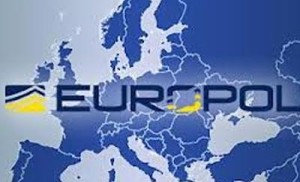
 While Europe is hit by the second wave of the COVID-19 pandemic, testing is ongoing for potential new vaccines to treat the virus. The European Medicines Agency (EMA) has announced that it will conclude evaluation of the first conditional marketing authorisation application for a COVID-19 vaccine before the end of the year. Several EU Member States have already published their vaccination plans. Europol urges increased vigilance among Member States and third-party countries on the possible involvement of criminals in the vaccine development and distribution process. Today, Europol has published an early warning notification on Vaccine-related crime during the COVID-19 pandemic.
While Europe is hit by the second wave of the COVID-19 pandemic, testing is ongoing for potential new vaccines to treat the virus. The European Medicines Agency (EMA) has announced that it will conclude evaluation of the first conditional marketing authorisation application for a COVID-19 vaccine before the end of the year. Several EU Member States have already published their vaccination plans. Europol urges increased vigilance among Member States and third-party countries on the possible involvement of criminals in the vaccine development and distribution process. Today, Europol has published an early warning notification on Vaccine-related crime during the COVID-19 pandemic.Confirmed crime projections of counterfeit vaccines
In April this year, Europol announced the potential harm of offline and online scams offering alleged versions of the COVID-19 vaccine. Projections were also made in relation to the announcement of a genuine vaccine and the reaction of organised crime to adapt its methods to meet demand1. These projections were later confirmed in Europol’s November report, where it was identified that the distribution of substandard and counterfeit pharmaceutical products, including preventative COVID-19 vaccines had remained a consistent pandemic-related criminal activity2.
Counterfeit vaccines may pose a significant risk to public health
Owing to the pandemic, the demand for influenza treatments has been higher than usual and there are risks of shortages in numerous countries. This high demand may encourage people to seek the vaccine elsewhere. For this reason, once the legitimate vaccine enters the market, counterfeit versions of the brand are expected to circulate rapidly to meet the high demand. It is feared that criminals will share disinformation to defraud individuals and companies alike. There have already been cases of advertisements on dark web marketplaces using the brands of genuine pharmaceutical companies that are already in the final stages of testing3.
These counterfeit vaccines may pose a significant risk to public health if they are ineffective or toxic, given their production in labs without the required hygiene standards. These fake vaccines may circulate on illicit markets or be introduced to the legal market for distribution. Europol actively encourages Member States to share any relevant information on criminal activities related to COVID-19 or flu vaccines.





